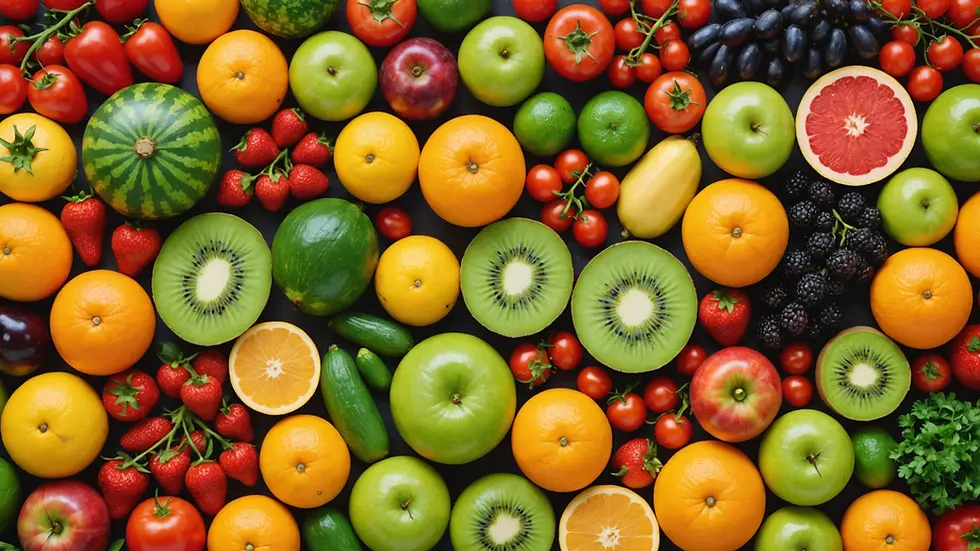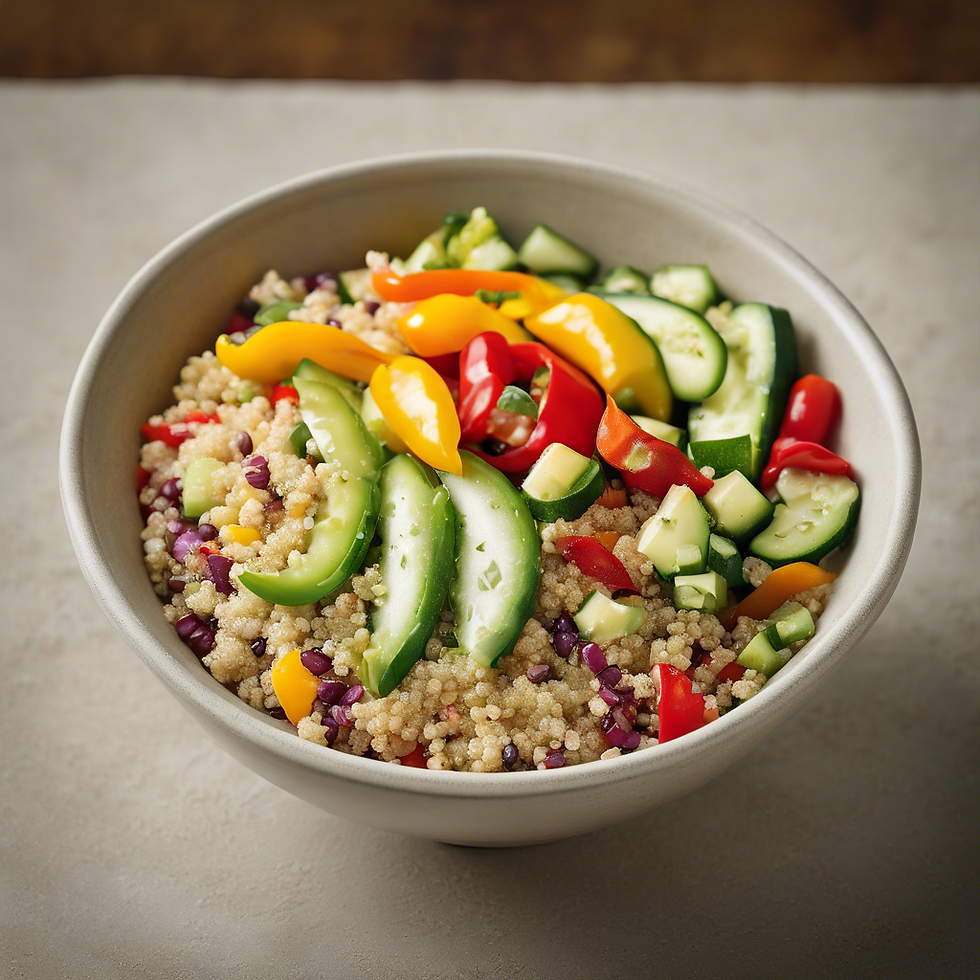Uncovering the Surprising Benefits of Fiber in a Plant-Based Diet: A Closer Look
- aliwilhelm9
- Nov 18, 2024
- 4 min read
Fiber has become a key topic in health and nutrition conversations. It plays a vital role in digestion and is a crucial part of a balanced diet, especially for those embracing a plant-based lifestyle. In this article, we will explore the many benefits of fiber, clear up some misconceptions, and highlight how simple it is to include fiber-rich foods in your daily meals.
What is Fiber?
Fiber is a type of carbohydrate that your body cannot digest. Unlike other carbs that break down into sugars, fiber moves through your digestive system largely intact. There are two main kinds of fiber: soluble and insoluble. Soluble fiber dissolves in water and can help manage blood sugar levels and lower cholesterol. Insoluble fiber does not dissolve in water and is essential for adding bulk to your stool, promoting regular bowel movements.
Health Benefits of Fiber
Getting enough fiber in your diet comes with many health benefits. Let’s look at some significant advantages:
Digestive Health
Fiber is crucial for maintaining a healthy digestive system. It adds bulk to your food, which helps your digestive tract work efficiently. A high-fiber diet can reduce the risk of constipation, diverticulitis, and other digestive issues. For example, studies show that people who consume 25 to 30 grams of fiber daily have significantly lower rates of digestive disorders.
Weight Management
High-fiber foods are generally more filling than foods low in fiber. This helps you feel satisfied while consuming fewer calories, which is beneficial for weight control. Research indicates that individuals with a higher fiber intake are about 30% less likely to experience weight gain over time. This means you can enjoy larger portions of healthier options without the extra calories.
Heart Health
Both soluble and insoluble fiber contribute to a healthier heart. Soluble fiber helps lower blood cholesterol levels by binding to cholesterol and flushing it from the body. Studies have shown that a daily intake of just 5-10 grams of soluble fiber can result in a 5% to 10% decrease in LDL cholesterol levels, significantly lowering heart disease risk. Insoluble fiber also supports heart health by aiding blood pressure management.
Blood Sugar Control
Fiber plays an important role in regulating blood sugar levels, which is particularly essential for those managing diabetes or insulin sensitivity. Soluble fiber slows the absorption of sugar, helping prevent spikes in blood glucose levels. Research shows that individuals who consume 20-35 grams of fiber daily can reduce their risk of developing type 2 diabetes by up to 30%.
Cancer Prevention
There is evidence suggesting that a diet high in fiber may lower the risk of certain cancers, especially colorectal cancer. Fiber aids in moving waste through the intestines, which reduces the exposure time of harmful substances in the gut. One study found that individuals with the highest fiber intake had a 22% lower risk of developing colorectal cancer compared to those with the lowest fiber intake.
A Plant-Based Diet: A Natural Fiber Source
Switching to a plant-based diet is an effective way to boost your fiber intake. Fruits, vegetables, legumes, and whole grains offer exceptional fiber sources that not only enhance health but also add variety and flavor to your meals.
Fruits and Vegetables
Fruits and vegetables are typically high in both types of fiber and packed with vitamins and minerals. For example, one medium apple with the skin contains about 4 grams of fiber, while a medium-sized banana provides around 3 grams. Aim to include a rainbow of colors in your diet; each color provides different nutrients that are beneficial for overall health.
Legumes: The Fiber Powerhouses
Beans, lentils, and chickpeas are some of the most fiber-rich foods available. One cup of cooked lentils delivers about 15 grams of fiber. Incorporating legumes into your meals not only keeps you full but also adds protein and other essential nutrients. For example, adding a cup of black beans to a salad can provide over 15 grams of fiber and about 15 grams of protein.
Whole Grains
Whole grains like brown rice, quinoa, and oats are excellent sources of fiber. A serving of oatmeal typically offers around 4 grams of fiber, while a slice of whole grain bread adds about 2 grams. Making the switch to whole grains instead of refined grains can significantly enhance your daily fiber intake.
Tips for Increasing Fiber Intake
While a plant-based diet is an excellent way to get more fiber, here are some practical tips to help you increase your intake easily:
Start Slowly: If you are new to a high-fiber diet, introduce fiber into your meals gradually. This can help avoid any digestive discomfort.
Hydrate: Drink plenty of water throughout the day, especially when increasing fiber. Staying hydrated helps prevent bloating and digestive issues.
Incorporating Fun with Fiber
Making your meals enjoyable while boosting fiber can be simple and fun. Consider adding fiber-rich foods to your favorite recipes. For instance, you can include beans in tacos, use quinoa as a salad base, or blend leafy greens into smoothies for an extra nutrient boost. These small changes can lead to significant health benefits without sacrificing taste or satisfaction.

Embracing the Power of Fiber
Fiber is a vital nutrient that offers numerous health benefits, particularly in a plant-based diet. From promoting digestion to aiding weight control and reducing the risk of chronic diseases, including fiber-rich foods in your meals is essential for overall well-being.
By focusing on fruits, vegetables, legumes, and whole grains, you can easily enhance your fiber intake and enjoy the various benefits that come with it. With a bit of planning and creativity, a fiber-rich diet can be delicious, satisfying, and surprisingly easy to adopt. Embrace the power of fiber for a healthier life!




Comments